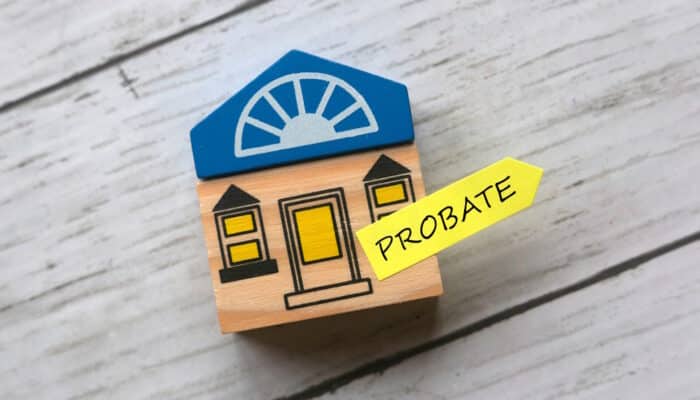Estate planning and probate law in Florida are complex areas where understanding which assets are exempt from probate is essential. Identifying these exemptions can simplify the inheritance process and significantly influence estate planning.
What Are Exempt Assets in Florida?
Exempt assets in Florida are those that are protected from probate and creditor claims, ensuring a more direct transfer to beneficiaries. These protections or safeguards are derived from both the Florida Constitution and statutory exemptions.
Key Exempt Assets Include:
1. Revocable Trusts
- Assets held in revocable trusts do not go through probate. They are transferred directly to the beneficiaries specified in the trust, facilitating quicker and smoother distribution.
These trusts are established during the grantor’s lifetime and can be altered or revoked. Assets in the trust bypass probate, offering privacy and quicker distribution.
2. Designated Beneficiary Accounts
- Retirement accounts, life insurance policies, and payable-on-death (POD) or transfer on death (TOD) or In Trust For (ITF) accounts bypass probate if they have designated beneficiaries. These assets transfer directly to the named individuals.
Accounts such as IRAs, 401(k)s, and life insurance policies allow for direct beneficiary designation, ensuring these assets are transferred outside the probate process.
3. Joint Accounts
- Assets held in joint accounts with the right of survivorship automatically pass to the surviving account holder, avoiding probate.
Joint accounts with survivorship rights automatically transfer to the surviving co-owner. This type of ownership is common among family members.
4. Tenancy by the Entireties
- This form of ownership, available to married couples, ensures that assets transfer directly to the surviving spouse without probate intervention.
This is a special form of joint ownership available only to married couples, where each spouse owns the undivided whole of the property, and upon one’s death, the other becomes the sole owner.
5. Homestead Property
- Homestead property in Florida is protected from creditors and, under certain conditions, passes directly to heirs without going through probate via Tenancy by the Entireties, Joint ownership with right of survivorship, a Lady Bird Deed or Homestead Trust.
Florida’s homestead exemption protects a primary residence from forced sale by creditors and allows the property to pass directly to heirs, given it meets certain conditions.
6. Motor Vehicles
- Vehicles can be directly transferred to specified beneficiaries if designated in a Last Will or through transfer-on-death registration, thus excluding them from the probate estate.
Under Florida law, vehicles can be transferred to heirs without probate if they are specifically bequeathed or if a transfer-on-death registration is used and go to the DMV or Tag Agency.
Further, all heirs or any one of the heirs must complete HSMV 82040 as applicant(s), photocopy of death certificate, photocopy of the Will, if one exists, photo ID, Florida title (leave blank) or an affidavit stating the title is lost or destroyed (section 11 of HSMV 82040, first box). IF NO WILL- also need an affidavit that the estate is not indebted and affidavit that the surviving spouse, if any, and the heirs, if any, have agreed on how the estate asset or assets will be divided or distributed.
7. Personal Property in Primary Residence
- Personal property within the decedent’s primary residence up to a certain value is exempt from probate, ensuring immediate accessibility to heirs and allowing these items to be distributed directly to heirs.
8. Qualified Tuition Programs
- Florida’s prepaid college programs and 529 savings plans are also exempt from probate, allowing educational funds to directly transfer to the beneficiaries without probate involvement.
Importance of Understanding Probate Exemptions:
Knowing which assets are exempt from probate is essential for efficient estate planning. It helps ensure a smoother transition of assets and provides financial security to heirs. Personal Representatives (Executors) and beneficiaries benefit from understanding these exemptions, as they impact the overall probate process and asset distribution.
Professional Guidance:
Navigating the complexities of Florida’s probate laws can be challenging. Consulting with a knowledgeable Florida probate attorney is crucial to ensure your rights are protected and the estate is handled correctly. Expert legal advice can help a Florida resident optimize their estate planning and navigate probate effectively, ensuring a smoother process for them and their loved ones.
Conclusion:
Understanding which assets are exempt from probate in Florida can significantly ease the estate planning and inheritance process. It provides clarity and efficiency, sparing beneficiaries from the lengthy and costly probate procedure. Professional guidance is essential to navigate these complexities, ensuring the estate is managed effectively and beneficiaries receive their inheritance without unnecessary delays.
The foregoing is a brief and general overview of the topic. If you have any additional questions regarding the foregoing or have any legal issue or concern, please contact the law firm of CASERTA & SPIRITI in Miami Lakes, Florida.










